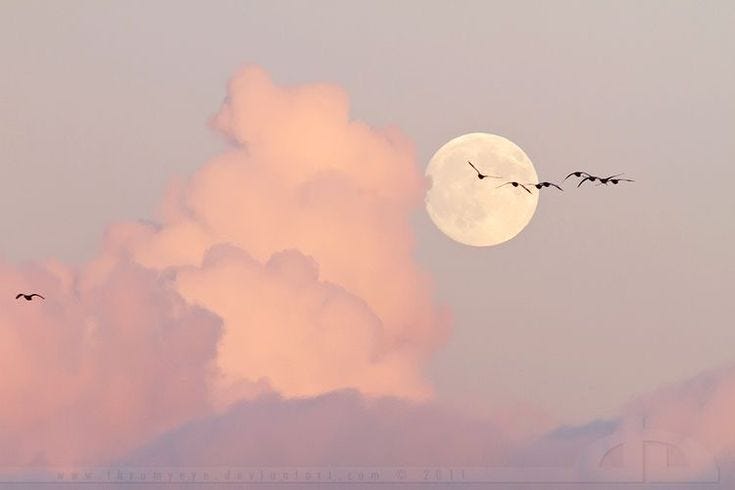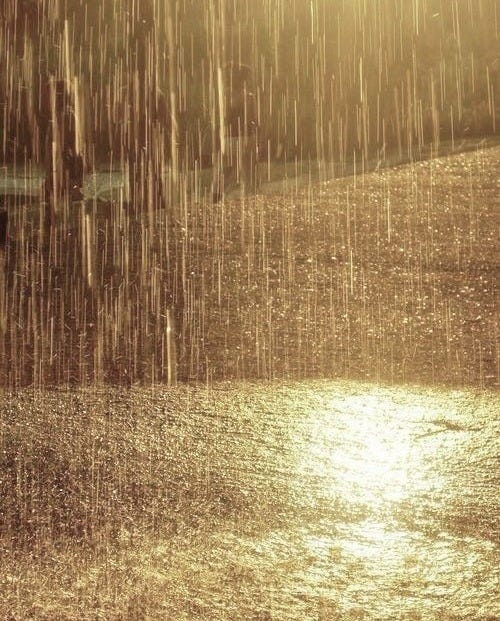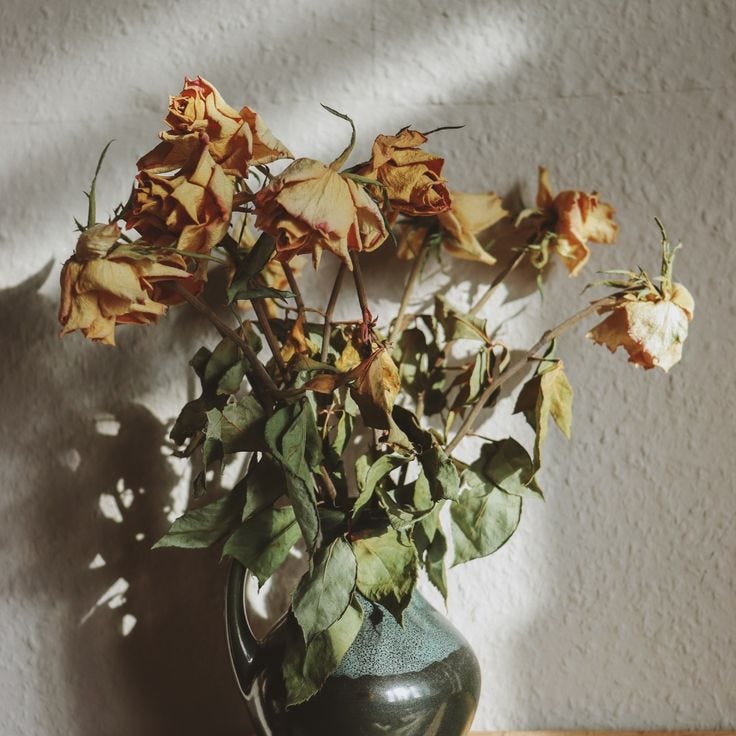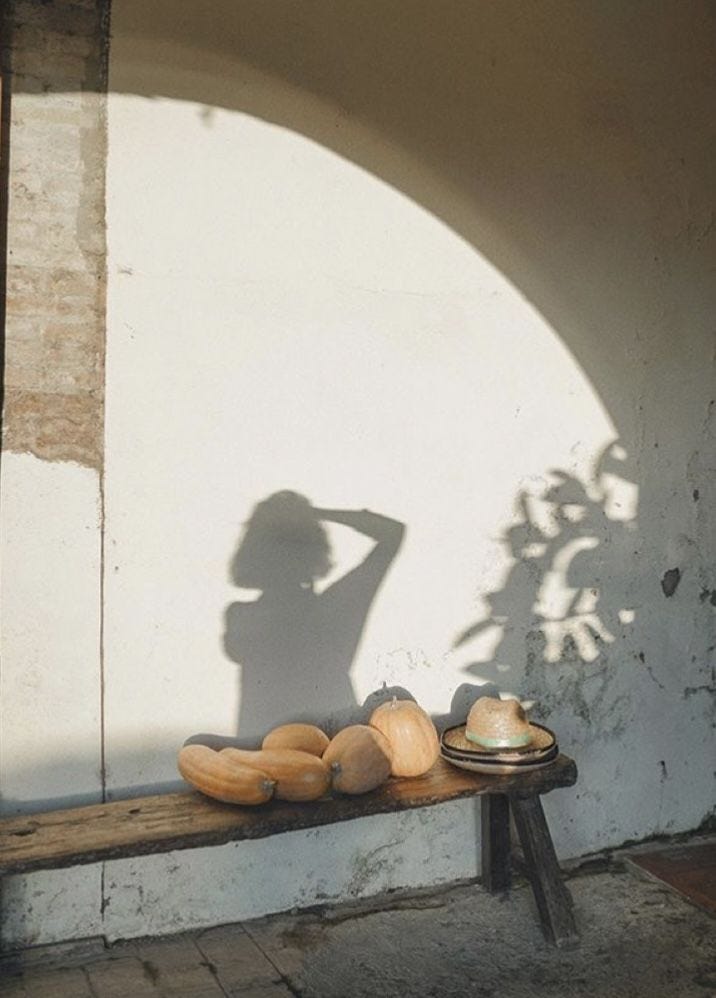Why Friendship Can Feel So Hard for Highly Sensitive People
And how letting go with gratitude can gently bring us back to ourselves.
Circle of Joy is where this work comes to life - a soft space for deep feelers and gentle action-takers. Guided practices have arrived for subscribers, with more on the way. You’re warmly invited to join us.
If you’ve ever felt like friendship is trickier than it should be - you’re not alone.
Especially if you’re a highly sensitive person (HSP), an empath, or simply someone who feels life more deeply than most.
These are the quiet conversations I find myself having over and over again:
The ache of being misunderstood.
The burnout from always being the one who holds space.
The loop of overthinking every text, every silence, every “Did I do something wrong?”
So let’s talk about why it might feel harder for us - and how the seemingly unrelated act of decluttering can actually help us soften, strengthen, and reclaim our sense of self in the process.
1. Sensitivity brings awareness - and overwhelm.
Highly sensitive people pick up on subtleties others miss: tone shifts, emotional undercurrents, room dynamics. This can be a gift - but also a heavy cognitive load. Social interactions that others breeze through might leave you drained, overstimulated, or unsure how to process what just happened.
It’s no wonder so many of us feel more grounded in small, meaningful interactions than in group settings.
What helps: Let your social life be shaped by your nervous system, not just your calendar. Protect your energy the way you would protect your peace. Small doses, spacious days, gentle recovery.
For women, one of the kindest things you can do is to honour your cycle. I live with PMDD (premenstrual dysphoric disorder), and learning to align my expectations, social life, and workload with my cycle has been one of the most powerful ways I’ve learned to live well — not in spite of my sensitivity, but in harmony with it.
2. We crave depth — and can feel disappointed when it’s missing.
Surface-level conversation rarely satisfies us. We’re wired for meaning, for resonance, for honesty. So when interactions stay in the shallow end — or when people seem emotionally unavailable — we might pull back, or wonder if something is wrong with us.
It can take longer to find our people. But when we do, the connection tends to be beautifully rich.
What helps: Trust the pace. Trust the pauses. And remember: you can’t rush depth.
Like with decluttering, the clarity comes through the process — not before it.
3. The emotional hangover is real.
One charged moment - a slightly sharp comment, a change in plans, a feeling of being left out - can linger for days. Our systems take longer to process, and when left unchecked, the mind fills in the gaps with stories rooted in rejection or inadequacy.
This is where gratitude becomes a quiet superpower.
In the same way we thank the objects we’re letting go of, we can begin to thank the moments or connections that no longer serve us — without needing to vilify them. Without needing to grip so tightly to the story.
What helps: When something hurts, pause. Breathe. Then practice letting go with gratitude:
”Thank you for showing me what I will no longer carry. I’m free to move forward.”
“Thank you for illuminating the original wound. I honour it, and I choose peace now.”
It’s a simple, powerful way to interrupt the negativity bias and gently recalibrate.
4. Boundary-setting can feel brutal.
We care. A lot. And that often means we put other people’s comfort above our own. Saying no, asking for space, or even voicing a need can feel like an emotional minefield — especially when we fear being perceived as too much, too sensitive, or not enough.
But here’s the truth: boundaries aren’t walls. They’re clarity. They’re invitations to meet one another with mutual respect.
And decluttering teaches us that, too. It teaches us to notice. To discern. To decide what belongs in our lives — and what doesn’t.
What helps: Start small. Practice boundary-setting in your space before your relationships.
Say no to the clutter, the noise, the expectations you’ve outgrown — and yes to more room to be yourself.
5. We tend to hold on — even when it hurts.
We replay conversations. We analyze silences. We stay longer than we should because we understand the other person - even when they don’t understand us.
Letting go can feel like failure. But often, it’s actually freedom.
And this is where the practice of decluttering becomes a quiet revolution.
It teaches us to let go not in anger, but in appreciation. To see what once served us, honour it, and move forward with a lighter heart.
What helps: When a friendship feels heavy, ask yourself: Does this still align with who I’m becoming?
And if the answer is unclear, or not yet, try this: pause.
Using the word pause has softened things for me. It doesn’t have to be a dramatic ending. It doesn’t have to be forever. Sometimes it’s simply stepping back to create space — for your nervous system, for clarity, or even for the other person’s growth.
You can hold that space without judgement. You can pause without closing the door. And in doing so, you choose self-respect over people-pleasing — while leaving room for reconnection, if and when it feels right.
If you’re a highly sensitive soul navigating the messy, beautiful landscape of friendship - I see you.
And I want to remind you:
🌿 You are not too much.
🌿 You’re allowed to protect your peace.
🌿 You get to choose what stays - and what goes - in your relationships, your home, your mind.
Decluttering isn’t just about stuff. It’s a practice in alignment. In self-compassion. In saying yes and no with a little more ease, and a lot more trust.
Letting go with gratitude softens the sting of disappointment and makes space for the kind of connection that truly nourishes.
The kind you deserve.
Circle of Joy is where this work comes to life - a soft, grounded space for deep feelers and gentle action-takers. It’s where we go beyond the ideas and into embodied practice, with live sessions, guided reflections, and community support. Available to paid subscribers - and you’re warmly invited to join us.











So beautifully written. You helped me with this journey and I wouldn’t be the woman I am today without you.
You helped me begin to take power back in my life wirh such a simple and powerful method.
Thank you Rebecca for what you do and for who you are.